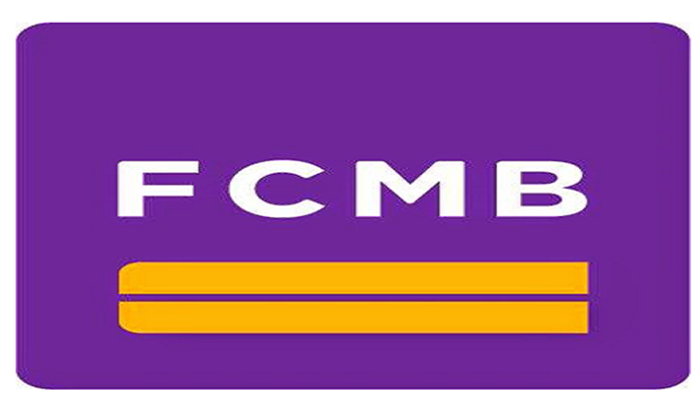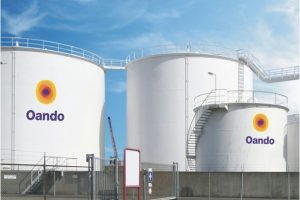February 5, 2019/InvestmentOne Report
· Mixed top line: down 4.25% q/q, up 1.42% y/y.
· Weak gross profit margin: up 19bps q/q; down 484bps y/y.
· Stable Opex to sales ratio: down 5bps q/q; up 44bps y/y.
· Declining Profit Before Tax: down 3.63% q/q; 50.61% y/y.
Recently, Flour Mills of Nigeria (FMN) Plc published its Q3 2019 results (Year-end March), which were reflective of higher turnover on the back of stronger sales volume in Q3 2019.
Topline Remains Volume Driven
The company’s turnover rose by 1.42% y/y to N130billion in Q3 2019. This was basically driven by higher volume sales as the company’s brand building focus further ensured its growth in market share. We highlight that the boom in sales reflected in the Food and Support service Segment which improved by 1.26% and 48.75% respectively.
We opine that the gradual improvement in consumer spending could have supported the company sales despite the prevalence of smuggled products in the market. The improvement in volume could also be as a result of the price cut the company took in previous quarter (Q2 2019).
Higher Input Cost and Lower Prices Pressure Margin
However, FMN’s gross profit margin was under pressure as a result of the price cut and higher wheat prices in the global commodities market despite the stability in FX market. As a result, gross profit margin declined by 484bps y/y to 11.06% in Q3 2019.
We highlight that key players in the agro allied space have experienced fall in their margins due to the impact of Apapa gridlock, smuggling in the North and rising wheat prices as the gross profit margin of Dangote Sugar Refinery and Dangote Flour Mills declined to 20.78% and 11.41% in Q3 2018 from 32.89% and 21.01% in Q3 2017.
Lower Margin Weighs on PBT
Moving down to the P& L line, a combination of 44bps y/y increase in OPEX/sales and the fall in gross profit margin more than offset the 41.67% decline in net finance cost. As a result, the company’s PBT margin was down by 239bps y/y to 2.27%.
We believe the balance sheet restructuring by the company in terms of refinancing expensive short dated instruments with long dated bond drove the its net finance cost down. Overall, the company recorded a 50.61% y/y decline in PBT to N2.98billion in Q3 2019.
High Base Effect Slows Quarter On Quarter Performance
On a sequential basis, turnover was down by 4.25% q/q to N130billion due to the high base effect of Q2 2019 volume. However, the gross profit margin improved by 19bps q/q to 11.06% due to input cost pressure.
That said, a 2.57%q/q increase in net finance cost offset the impact of the 4.93% q/q increase in other income, and the rise in gross profit margin. As such, PBT margin remained flat at 2.27%. Overall, the company recorded a 3.63% q/q decline in PBT to N2.97billion in Q3 2019.
Weaker H1 Performance Draws 9M Performance Down
Over the 9months period, turnover declined by 6.28% y/y to N400billion due to lower prices despite higher volume in the period. In the same vein, the gross profit margin declined by 148bps y/y to 11.63% due to the cut in price and increase in wheat prices during the year.
That said, a combination of a 71.53% y/y decrease in other income and the fall in gross profit margin more than offset the 34.22%y/y decline in net finance cost and drove the PBT margin down by 144bps y/y to 3.08%. In the same vein, the company recorded a 38.39% in PBT to N8.30billion in H1 2019.
Summary And Outlook
Overall, the results were headlined by fall in gross profit margin which weighed on the increase in volume and lower net finance cost.
Going forward, we expect the successful issuance of N40billion rights issue to continue to reduce the company’s finance cost thus supporting the PBT margin in the near term. In the same vein, the company’s switch to commercial paper which is cheaper than bank loan could reduce its finance cost as highlighted by the management. Similarly, we believe the successful completion of the first tranche of the N70billion bond programme with about N20billion raised for 3 and 5 years.
Furthermore, the company’s recent commissioning of the Sunti sugar Cane plantation and refinery plant could reduce company’s importation of raw material thus supporting gross profit margin. This combined with plans to acquire more land for further development, geared towards achieving the 6,500 metric tonnes per day (mtpd) capacity of the mill, may enhance the company’s gross profit margin performance over the medium to longer term given that c.70% of the company’s cost of goods are dependent on FX.
In the same vein, we see support to FMN’s performance from expected improvement in consumer demand due to potential increase in minimum wage and election spending.
Our pricing model is under review.
|
Flour Mills of Nigeria Plc Q3 2019/ 9M 2019 figures. YE: MARCH (N’ millions) |
Q3 2019 |
Q/Q |
Y/Y |
9M 2019 |
Y/Y |
|
|
Sales |
130,904 |
-4.25%
|
1.42%
|
400,640 |
-6.28%
|
|
|
Cost of Sales |
(116,429) |
-4.45%
|
7.27%
|
(354,046) |
-4.69%
|
|
|
Gross Profit |
14,475
|
-2.58%
|
-29.47%
|
46,594
|
-16.85%
|
|
|
Gross margin |
11.06%
|
19bps
|
-484bps
|
11.63%
|
-148bps
|
|
|
Other operating income/loss |
468 |
4.93%
|
8.58%
|
1,568 |
-71.53%
|
|
|
OPEX |
(6,893) |
-5.19%
|
10.64%
|
(20,869) |
20.30%
|
|
|
Opex/sales |
5.27% |
-5bps
|
44bps
|
5.21% |
115bps
|
|
|
Net Finance cost |
(5,074) |
2.57%
|
-41.67%
|
(16,014) |
-35.15%
|
|
|
PBT |
2,976 |
-3.63%
|
-50.61%
|
11,279 |
-42.16%
|
|
|
PBT margin |
2.27%
|
1bp
|
-239bps
|
2.82%
|
-175bps
|
|
|
Tax |
(150) |
-91.01%
|
-92.97%
|
(3,383) |
-45.92%
|
|
|
PAT |
2,826 |
99.01%
|
-27.39%
|
7,896 |
-40.39%
|
|
|
PAT margin |
2.16%
|
112bps
|
-86bps
|
1.97%
|
-113bps
|
|
Source: Company financials, Investment One Research














